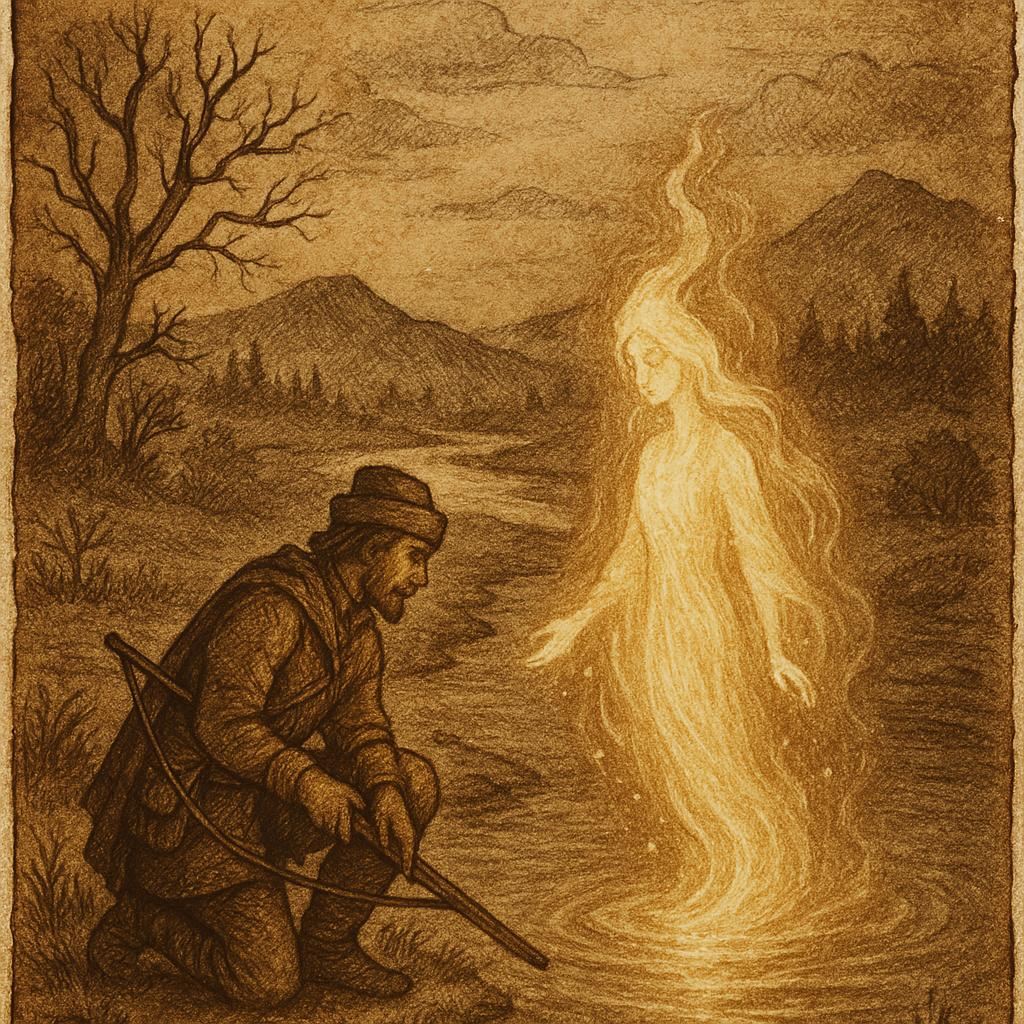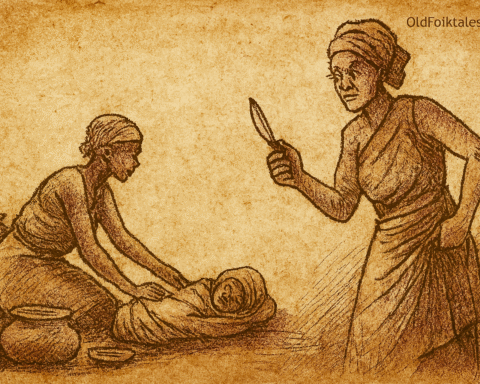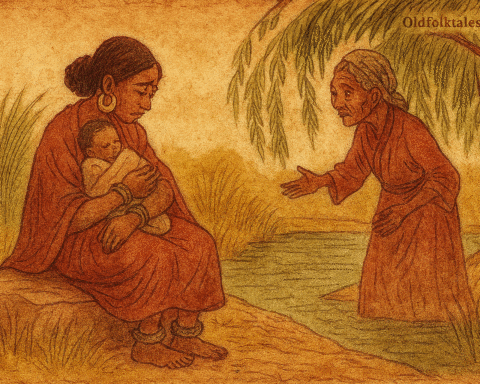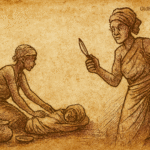Once upon a time, when rivers still spoke and the wind carried messages from one village to another, there lived a skilled hunter named Chukwuma. He knew every path in the forest, every hidden trail by the river, and every sign of animals that crossed the lands. Chukwuma prided himself on his skill and often boasted, “No creature can escape my aim, no river can resist my will.”
One day, Chukwuma wandered to the edge of the great Anioma River, known among villagers as home to a powerful spirit. The river sparkled like molten silver under the sun, and its gentle waves whispered secrets to those who would listen. Ignoring the murmurs of caution from the elders, Chukwuma aimed his spear at a flock of sacred water birds that nested along the riverbanks, creatures the river spirit protected.
The moment his spear left his hand, the river roared in fury. Water splashed violently, and a form rose from the depths—a spirit of shimmering blue, with eyes as deep as the riverbed and hair flowing like the current. The spirit’s voice rolled like thunder, “Hunter, why do you bring harm to what I protect?” Chukwuma froze, realizing he had angered a force far greater than any beast he had ever hunted.
“I… I did not know,” Chukwuma stammered. “I meant no disrespect.” But the spirit was not easily appeased. “Many have spoken such words, yet they continued their greed and pride. You will learn humility, or the river will swallow you whole.”
The river’s water rose higher, threatening to drag Chukwuma in. Fear gripped his heart as he bowed low and pleaded for mercy. “Please, mighty spirit, teach me how to honor the river and all it sustains. I will follow your guidance.”
The spirit’s gaze softened, and the waters calmed. “Return what you have taken and care for what you hunt. Take only what you need, and leave offerings to show gratitude. Remember, every life and every stream belongs to more than yourself. Respect nature, and you will walk safely among it.”
Chukwuma obeyed. He released the birds, left fruits and kola nuts by the riverbank as offerings, and promised to respect the forest and its creatures. From that day on, Chukwuma became a humble hunter, guiding others in his village to honor the rivers, trees, and animals. He told the tale of the river spirit, warning that pride and greed could bring misfortune, while respect for nature brings life and harmony.
The villagers learned from his story, and the Anioma River remained a sacred place, its spirit honored in every ripple and breeze. The hunter who once thought himself greater than the forest became a teacher of humility, reminding all that humans are only a part of the world, not its masters.
Moral Lesson: The Hunter and the Spirit of the River
Respect nature. Chukwuma learned that pride and disregard for the natural world bring danger. The river spirit showed him that every creature, every plant, and every stream deserves reverence. Humans thrive when they honor the balance of nature and understand their place within it. True strength comes from humility, not domination.
Knowledge Check: The Hunter and the Spirit of the River
Why did Chukwuma anger the river spirit?
He aimed his spear at sacred water birds, ignoring the protection of the Anioma River spirit.How did the river spirit react to the hunter’s actions?
The spirit rose from the water, spoke in a thunderous voice, and warned Chukwuma of the danger his pride had caused.What lesson did Chukwuma learn from the spirit?
He learned humility and the importance of respecting nature, taking only what he needed and showing gratitude.What actions did Chukwuma take to make amends?
He released the birds, left offerings by the riverbank, and promised to honor the forest and its creatures.How did the villagers benefit from Chukwuma’s experience?
They learned to respect the river, animals, and forest, understanding that humans are part of nature and not its masters.What is the main moral of the story?
Respect nature, practice humility, and honor all living things to maintain harmony and avoid misfortune.
Cultural Origin: Igbo, Nigeria




